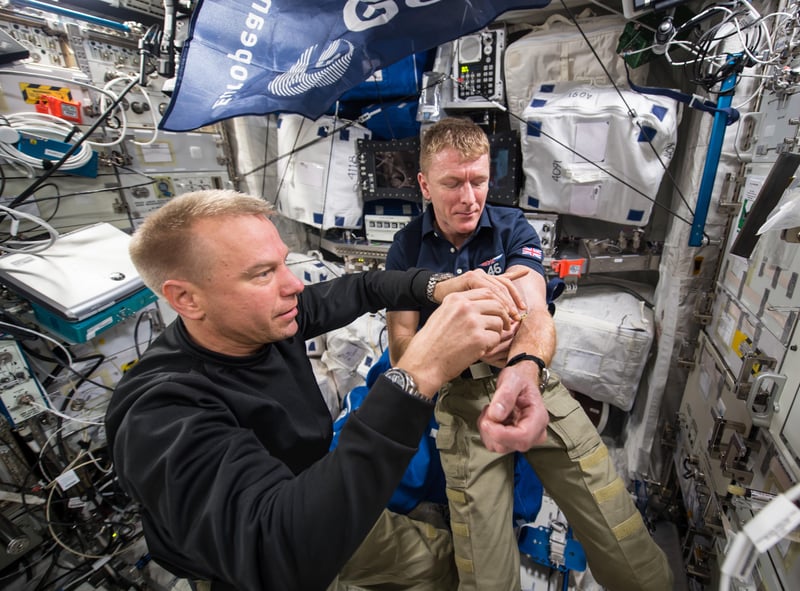Get Healthy!

- Cara Murez
- Posted December 26, 2022
Crafting Meals for Astronauts: Healthy Dining in Outer Space
Diets higher in fruit, vegetables and omega-3 fatty acids could improve astronaut health during long spaceflights while still sticking to requirements for what can go on board, according to new research.
A new study tested this theory on a spaceflight simulation chamber on Earth with 16 people: 10 men and six women.
Four individuals participated in each 45-day, Earth-based, closed-chamber mission. They either ate a standard astronaut diet or one that was enhanced with more fruits and vegetables, along with more fish and other sources of omega-3 fatty acids.
While the standard spaceflight diet is currently used on the International Space Station, the enhanced diet provided more than six servings of fruits and vegetables a day and between two to three servings of fish a week. It also featured other healthy foods.
The study found the enhanced diet was associated with lower cholesterol levels, lower cortisol levels (suggesting lower stress), and greater cognitive speed, accuracy and attention compared to the standard diet. It was also tied to a more stable microbiome.
The report was published online recently in Scientific Reports.
This enhanced spaceflight diet has significant health and performance benefits, said study author Grace Douglas, advanced food technology lead scientist for NASA in Houston, and colleagues. It may be beneficial for astronauts, even on short space missions, the research team noted in a journal news release.
All of the foods were shelf-stable, which is a must to meet storage conditions on space missions. The food was stored in the chamber before the start of each mission.
Participants provided samples of their saliva, urine, blood and stool, and completed cognitive assessment tasks throughout the missions.
Further investigation is needed to assess healthier diets in space, the study authors concluded.
More information
The U.S. Centers for Disease Control and Prevention has more on nutrition.
SOURCE: Scientific Reports, news release, Dec. 15, 2022


